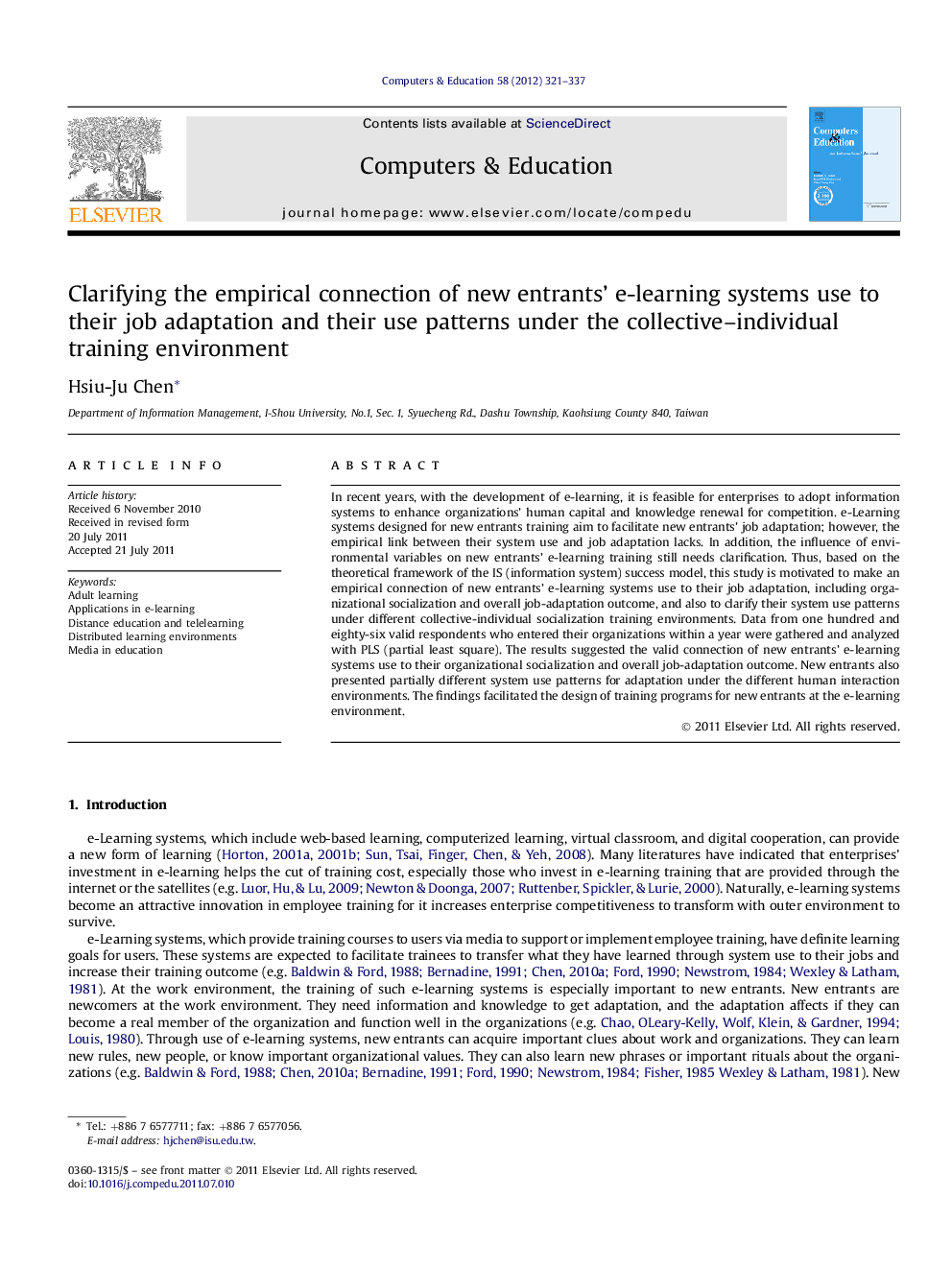| Article ID | Journal | Published Year | Pages | File Type |
|---|---|---|---|---|
| 348991 | Computers & Education | 2012 | 17 Pages |
In recent years, with the development of e-learning, it is feasible for enterprises to adopt information systems to enhance organizations’ human capital and knowledge renewal for competition. e-Learning systems designed for new entrants training aim to facilitate new entrants’ job adaptation; however, the empirical link between their system use and job adaptation lacks. In addition, the influence of environmental variables on new entrants’ e-learning training still needs clarification. Thus, based on the theoretical framework of the IS (information system) success model, this study is motivated to make an empirical connection of new entrants’ e-learning systems use to their job adaptation, including organizational socialization and overall job-adaptation outcome, and also to clarify their system use patterns under different collective-individual socialization training environments. Data from one hundred and eighty-six valid respondents who entered their organizations within a year were gathered and analyzed with PLS (partial least square). The results suggested the valid connection of new entrants’ e-learning systems use to their organizational socialization and overall job-adaptation outcome. New entrants also presented partially different system use patterns for adaptation under the different human interaction environments. The findings facilitated the design of training programs for new entrants at the e-learning environment.
► New entrants’ e-learning systems use enhances their organizational socialization. ► New entrants’ e-learning systems use enhances their overall job adaptation. ► New entrants present partially differences in system use patterns. ► Perceived usefulness enhances system use under the high human interaction environment. ► User satisfaction enhances system use under the low human interaction environment.
